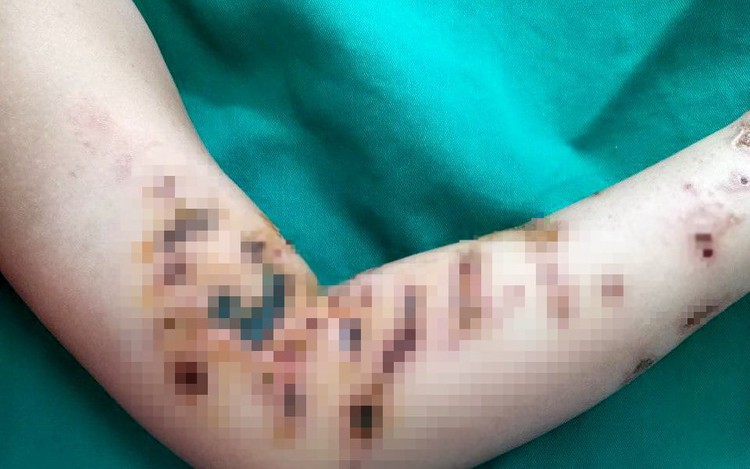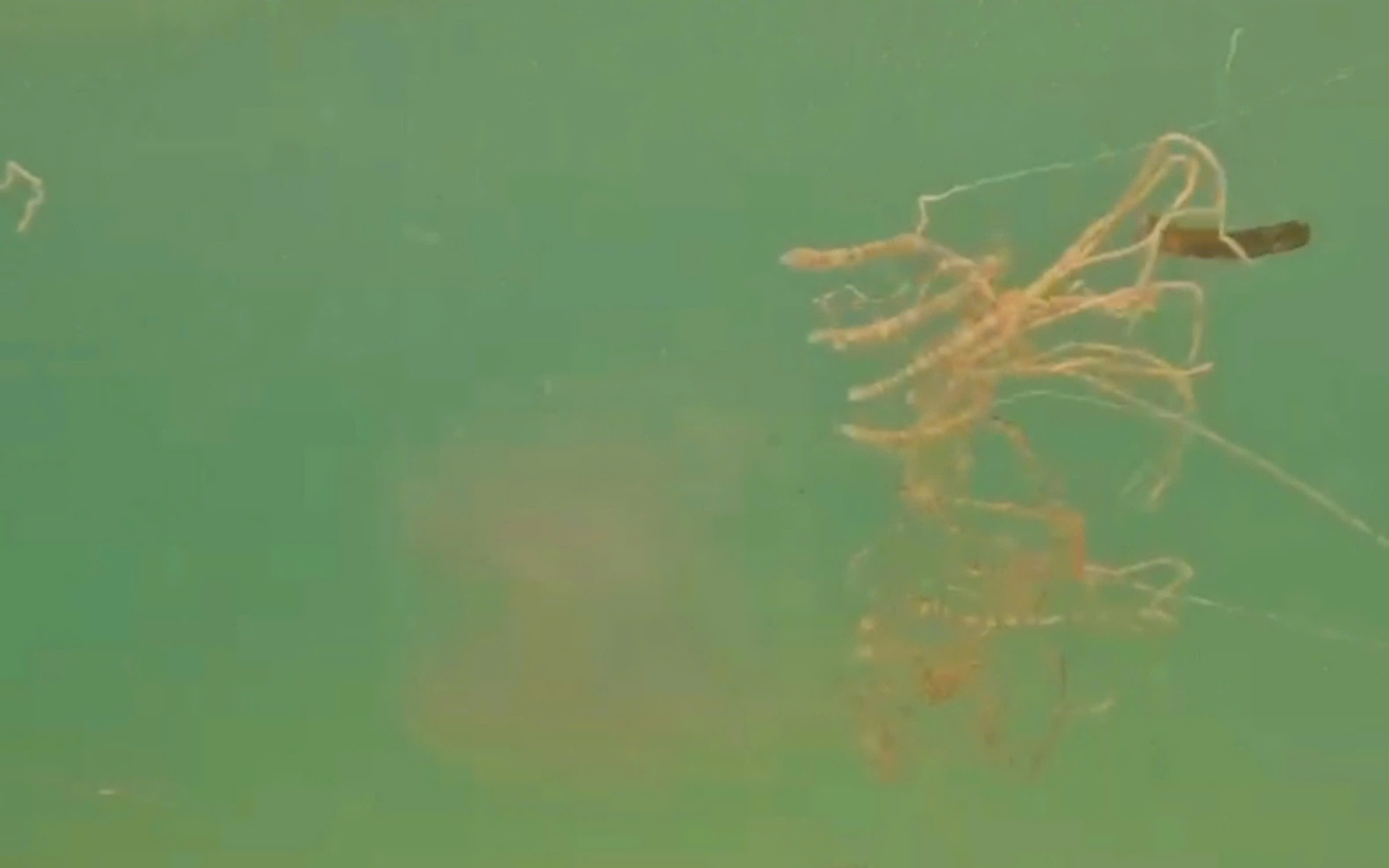
A child receives treatment after being stung by a jellyfish while swimming at a beach in Vietnam. Photo provided by the hospital.
Authorities are urging beachgoers to exercise caution after multiple reports of stings that can cause severe allergic reactions and, in some cases, life-threatening complications.
The jellyfish, known scientifically as Physalia physalis, typically appear in Vietnamese waters during summer.
Their venomous tentacles can cause intense pain and lead to symptoms ranging from mild skin irritation to serious systemic reactions.
“Each year we treat numerous cases of skin damage caused by jellyfish stings,” said Dr. Nguyen Thi Thanh Thuy, head of dermatology for women and children at the National Hospital of Dermatology and Venereology in Hanoi.
“Contact with fire jellyfish can lead to burning pain, itching, rashes, and blistering.
“In severe cases, it can trigger breathing difficulties, dizziness, nausea, and even cardiac complications that may be fatal if left untreated.”
Local beaches often issue warnings when fire jellyfish are detected, but experts say more public awareness is needed.
Fire jellyfish are distinguished from edible varieties by their appearance and toxicity.
They often have bright colors or transparent bodies and belong to a venomous group under the family Physaliidae.
Fire jellyfish sting tips
Health professionals recommend swift action in the event of a sting.
Victims should immediately leave the water and be assessed for symptoms such as fatigue, rapid heartbeat, or excessive sweating.
If these occur, emergency medical services should be contacted.
For mild cases, the remaining tentacles should be carefully removed using a clean tool, and the affected area should be rinsed with seawater, vinegar, or baking soda for 15 to 30 minutes.
Freshwater or drinking water should be avoided, as it may worsen the venom’s effects.
“Do not rub or scratch the wound,” Dr. Thuy warned.
“Improper treatment can lead to secondary infections, abscesses, scarring, or even sepsis.”
She also advised people to consult a doctor after being stung, even if symptoms seem minor, to ensure timely treatment.
Precautionary measures
Doctors recommend beachgoers check with local residents or authorities before entering the water to determine whether jellyfish are present.
Children should wear full-coverage swimsuits to minimize contact with sensitive skin.
“If you see jellyfish, especially brightly colored ones, do not swim,” Dr. Thuy said.
“Prevention is the best defense.”



Max: 1500 characters
There are no comments yet. Be the first to comment.